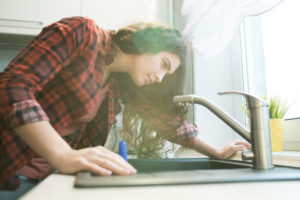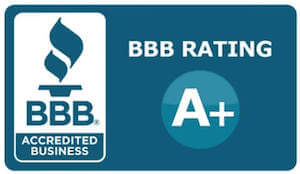
Usually, an AC system coupled with a dehumidifier does the trick in homes that tend to hold in the humid air. If they don’t seem to be working, it’s likely that some of the moisture in your home is coming from something besides the humid outdoor air. It could be that you have a plumbing issue that’s making your home more humid than it should be. In this article, we’ll talk about some plumbing issues that could be a cause for concern. Keep reading to learn more!
5 Plumbing Issues That Might Be Increasing Your Home’s Humidity Level
The major plumbing concern that could be causing your home to be overly damp is, quite simply, leaks. Unfortunately, people may not realize that there can be leaks that aren’t always noticeable. If your home seems overly damp, or you’re noticing a musty odor or mold growth throughout your home, you might want to check for leaks in these areas:
- Tub & Shower Drains: Tub and shower drains can leak, especially those that are plastic or fiberglass, as these materials tend to flex when people stand on them. That can result in the seal around the drain breaking. Signs that this could be happening include water stains on a ceiling below the tub, or damp and loose tiles or flooring around the tub.
- Toilet Flange: The toilet flange is the space where your toilet is joined to the waste pipe. In the occurrence of a toilet flange leak, water will seep out every time you flush. This is very problematic, as it not only contributes to the dampness in your home, but it eventually destroys your flooring and subflooring, and, if your bathroom is located on a second story, the ceiling below.
- Sinks: Leaky pipes underneath your sinks can be sneaky. Sometimes, it’s a small leak that may not be readily noticeable, but over time will cause your sink base and flooring to rot. If you notice that items stored in an under-sink cabinet seem damp, old water stains near the plumbing, or a musty odor, chances are you have a leak.
- Water Heaters: Water heater tanks can start slowly, but then eventually burst – leaving you with a disaster on your hands. If you notice any puddling around the tank, it’s time to act. It could be a valve, which usually only requires a repair. But if the tank itself is leaking, you will likely need to replace it right away.
- Washers: There are many reasons why your washing machine might be leaking, including drain hose issues, a faulty drain pump, or even a clogged hose. Check for puddles behind or around the washer if you suspect this might be a problem. Leaks around your washer can damage flooring and cause wood rot, so they should be taken care of as soon as possible.
I think I may have a plumbing issue in my home. Who can help me?
When you choose Boelcke Heating and Air Conditioning to help with your leaky pipes, you’re choosing a full-service plumbing contractor who can help you get all the services you need. We’ll help to ensure the plumbing in your home is in tip-top condition. If you live in Stevensville, Coloma, St. Joseph, or the surrounding areas and need help with leaky pipes or appliances in your home, give us a call at (269) 429-9261. We’ll help you find the solution that best suits your needs.

